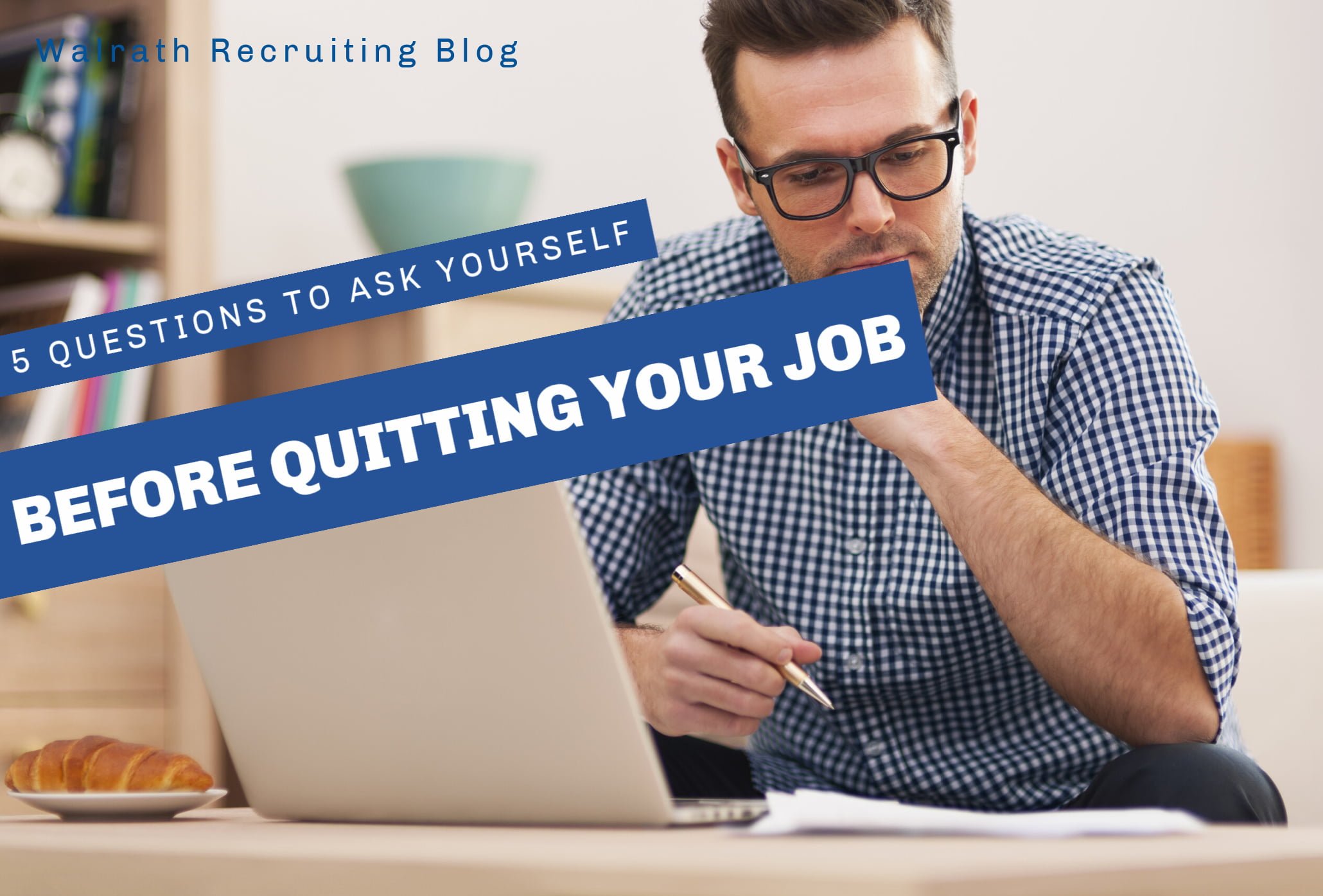Deciding to quit your job is a huge decision. It means throwing away your main source of income, and completely changing your day to day schedule. Both of those are two big changes that shouldn’t be understated. Before making a rash decision, you should consider all of your options and their consequences. Asking these questions will help you make an informed decision.
Why do I want to leave?
Obviously the first step in the entire decision process is finding out why you want to quit. Realizing your motivations for wanting to leave is step one. Is it because you’ve grown bored with the work and don’t feel challenged? Are there certain coworkers you can’t tolerate? It could be one of many different reasons, or a combination of more than one. Before making further considerations, you have to understand the source of your frustrations.
Can the problem be fixed?
Once you understand why you feel the urge to quit, you can assess the permanence of the problem. Is it a temporary problem that will go away? Perhaps it’s a busy part of the year, which means work is more grueling than usual, but it will pass. Or, maybe your boss just doesn’t like you, and that won’t be changing anytime soon. Either way, try to decide if the problem is something that will persist.
Maybe it is something that you could try to fix. If there is a coworker you don’t get along with, you could try to mend ties with them personally, or approach Human Resources. If it’s a problem that has a solution, you then have to decide if it is worth seeking out. Focusing on what the problem is, and if it is something that could be resolved may change your mind. If not, there are more things to consider.
Can I financially support myself?
If you already have a job offer outstanding, it makes the decision to quit your job much easier to make. Having another job lined up solves many of problems associated with quitting your job. You don’t have to worry about financial stability, or starting a whole new job search. However, if you don’t have a job lined up, you have other things to consider.
If you quit your job without good cause, you won’t be eligible for unemployment. That means you will lose your main source of income, and also not be eligible for another. So if you are planning on quitting your job without having another in the works, finances should be on your mind. Consider looking at your savings, and budgeting out what you have. How far could you stretch it, and how would that affect your lifestyle? Even if you do want to quit your job, you may consider staying for financial reasons, which brings us to our next question.
Can I tolerate this job until I find another?
For a number of reasons, it might be wise to wait to quit until you have another opportunity lined up. One of the first and foremost reasons is that not being actively employed makes you a less attractive candidate. There will be questions about why you aren’t currently working, and all of the assumptions made won’t be good ones.
On the other hand, it’s possible that you may not be able to sustain yourself with no stream of steady income. If that is the case, you may want to consider continuing to work in your current position while you search for a new job. It’s definitely a lot of work to work full time and start a job search. However, doing so will allow you to have a steady source of income, and make you a more enticing candidate to recruiters.
How will quitting affect my work relationships?
Quitting your job is most certainly a personal decision, but it will affect those around you, and that’s worth considering. How will you leaving affect boss, team, and coworkers? If quitting might ‘burn bridges’ you may want to form a solid strategy about how you go about it. Having a strong network is always a valuable tool, especially when you are job searching.
If you can make a graceful exit and still stay on good terms with your coworkers, it can be hugely beneficial. However, it’s not always possible to salvage those relationships if you are trying to leave a toxic work environment. If you do decide to leave, do your best to preserve the relationships you formed.
Quitting your job is a huge decision, and you should certainly assess it from all possible angles before making a decision. We hope the questions mentioned above help you talk through your own decision process on what is sure to be a tough choice. There are many factors to consider, but at the end of the day you will know what is best for you.
- LATEST READS FROM WALRATH RECRUITING:


Leave A Comment